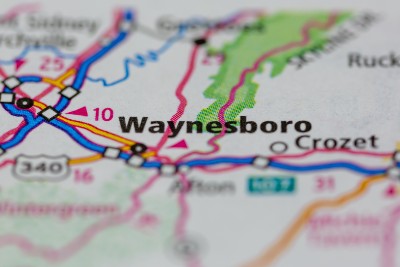
Law enforcement departments across the United States are facing a shortage of their most important resource: police officers.
“It’s an industry issue,” said Waynesboro Police Chief David Shaw.
Between retirements and the COVID-19 pandemic in 2020 in Waynesboro and the industry changing with compensation for police, the Waynesboro Police Department is 20 percent down in staff. Ten police officer positions are open, as well as office positions.
“I think it’s just a combination of a perfect storm,” Shaw, who has been with the department for almost 21 years and became chief in December, said. Usually the department has 49 officers, but right now WPD is serving the River City with 39 officers.
Shaw said that being a police officer is a “tough and demanding job,” but it can also be rewarding. If the police shortage were not a national issue, he said Waynesboro would look internally at what changes were necessary to recruit officers.
Generational differences are a factor, Shaw said, because today’s youth are looking for temporary positions or jobs. Law enforcement is a career.
“It’s a huge investment for us and the employee,” Shaw said.
In 2022, WPD began new strategies to recruit new officers.
“We really kicked up our social media this year, and we’re trying to show more personalization,” Shaw said.
The department also placed advertisements on local radio stations and participated in local job fairs. During COVID-19, the department did not have internships, but resumed offering internships. Externships will be offered in September and October. Internal recruitment efforts provide bonuses to employees who help the department find new staff. The department continues to offer sign-on bonuses, which it began two years ago.
“We got more hits this year so far with social media,” Shaw said.
Advertisements were also placed on popular job sites such as Indeed.com and Glassdoor.com under Waynesboro City opportunities.
“We’re seeing increased traffic on that. Just trying to digitize the [hiring] process,” Shaw said.
The department also faces an industry where competition has increased to recruit employees. Law enforcement competes with firefighters, military and medical personnel in recruiting talent.
“It just got very competitive,” Shaw said.
On the Waynesboro side of Afton Mountain, officers can earn in the mid-$40,000 per year, according to Shaw, but on the other side of Afton Mountain in Charlottesville officers can find positions making more.
“It’s difficult to compete with that,” Shaw said. The River City cannot keep increasing pay to compete for talent. Shaw’s department must stay within a budget allotted by the city.
Protests across the country and demands that law enforcement be defunded did not help encourage youth to become police officers in the last two years. Shaw said that law enforcement has always been dangerous and will continue to be a dangerous profession.
“You got to just really want to do this work,” he said. Police work is “just an intense job anyway.”
“No matter where you work in the country, you always run the risk,” Shaw said of law enforcement.
In Atlanta, Rev. Markel Hutchins, president and CEO of MovementForward Inc., works to bring the community and police together.
“The police shortage is something that’s affecting law enforcement agencies across the country,” he said.
Protests, calls to defund police departments and “the general lack of support from law enforcement” created a national environment in which individuals decided to get out of law enforcement and others decided not to get in.
Hutchins said that communities do not appreciate the effect that the lack of police presence has on safety. A direct link exists in communities where retaining and recruiting officers is a challenge and an increase of crime happens.
“There’s a direct correlation,” Hutchins said.
This is why MovementForward works to build bridges between communities and law enforcement. Encouraging youth, especially Black youth “to choose careers in law enforcement” is important, according to Hutchins.
MovementForward creates programs for communities and law enforcement officials “to come close to one another” and debunk the false information created about police. Opportunities must be created in communities for youth and police to interact positively so that youth can consider law enforcement as a career.
“Until we change the conversation, change some of these issues, we’re going to continue to have problems,” Hutchins said.










